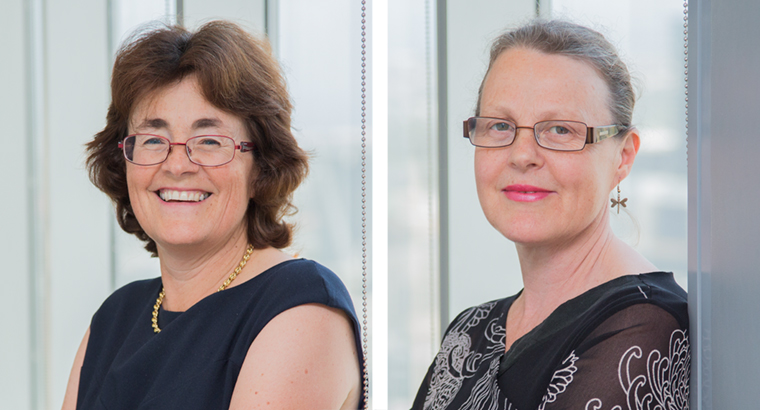Feature
Reflective learning: What the Dr Bawa-Garba case means for GPs in Australia
Following Dr Hadiza Bawa-Garba’s successful appeal of a lifetime ban from the UK medical register, many practitioners remain concerned about their own learning processes. But medico-legal experts told newsGP that Australian practitioners are on safer ground.
 Dr Bawa-Garba successfully appealed a lifetime ban from the UK medical register. (Image: Nick Ansell)
Dr Bawa-Garba successfully appealed a lifetime ban from the UK medical register. (Image: Nick Ansell)
It was 2011 and the UK’s Dr Hadiza Bawa-Garba, a junior doctor specialising in paediatrics, had just returned to work after 14 months of maternity leave.
The registrar was on her first full day at the Leicester Royal Infirmary Hospital when she was called to treat Jack, a six-year-old boy with Down’s syndrome. He also had a hole in his heart.
Jack was brought into the hospital with dehydration caused by vomiting and diarrhoea, his breathing was shallow and his lips were slightly blue.
In fact, when Jack was admitted to hospital he was experiencing pneumonia (a Group A streptococcal infection, also referred to as a ‘GAS’ infection), which caused his body to go into septic shock. The sepsis resulted in organ failure and caused his heart to fail. Despite efforts to resuscitate him, Jack died.
In 2015, Dr Bawa-Garba, was convicted of manslaughter by gross negligence and sentenced to two-year imprisonment, which was wholly suspended. An independent tribunal also suspended her from the medical register for 12 months.
But, last year, the UK’s regulator General Medical Council appealed to the High Court and succeeded in having Dr Bawa-Garba permanently struck off the medical register.
Dr Bawa-Garba, in turn, appealed that decision. She was ultimately successful, with the UK Court of Appeal last week restoring the original order that she be suspended for 12 months.
Safe reflection
It is widely believed the self-reflections that formed part of Dr Bawa-Garba’s continuing professional development were used against her in court. But Dr Penny Browne, a GP and the Chief Medical Officer at AVANT medical defence organisation, said that is a misconception. Dr Bawa-Garba’s professional reflections, written in her educational portfolio, were not submitted into court evidence.
However, Dr Browne told newsGP, the case has raised a lot of anxiety among health practitioners in Australia.
‘This case has had a significant media storm and we have had a lot of enquiries,’ Dr Browne said.
‘Doctors feel, “There, but for the grace of God, go I. That this could happen to any one of us. We could go to work one day do our best, make an error and this terrible outcome that has happened to Dr Bawa-Garba could happen to any of us”.’
Online reflection is part of the RACGP’s Quality Improvement and Continuing Professional Development (QI&CPD) planning learning and need activity, PLAN. The aim is for GPs to review their current knowledge and skills, and identify areas of focus for their general practice learning necessary to meet the evolving needs of their patients, their community and themselves.
Unlike the reflective diaries used in the UK, PLAN is not a tool used to measure competence or reflect on clinical cases and performance.
 L–R: Dr Penny Browne said she encourages reflective learning, but GPs should take some measures to protect themselves; AVANT lawyer Helen Turnbull believes reflective learning should have legal privilege.
L–R: Dr Penny Browne said she encourages reflective learning, but GPs should take some measures to protect themselves; AVANT lawyer Helen Turnbull believes reflective learning should have legal privilege.
Dr Browne said she encourages reflective learning; however, GPs can take some measures to protect themselves.
‘We should be encouraging doctors to be able to reflect and learn from their errors,’ she said.
‘But we would recommend that they do it in a fashion that it is not identifiable either in relation to a particular patient or particular circumstances, and maybe even should change some of the facts in order to make sure that that was not even in retrospect identifiable.’
Dr Browne said AVANT is also working with the Medical Board of Australia to develop safeguards to offer a degree of protection to the author for that document to not be used for a range of legal proceedings.
‘We will be seeking for there be legal privilege attached to the self-reflection,’ Helen Turnbull, AVANT’s Special Council Professional Conduct, told newsGP.
But Ms Turnbull said the major difference between Australia and the UK is that to be charged for manslaughter in Australia, there must be a close correlation between moral culpability and legal responsibility.
‘To meet the elements of manslaughter by criminal negligence, you have to have a duty of care between the doctor and the patient,’ she said.
‘You need to have breached that duty, and that can be by an act or by omission and, importantly, the breach of duty must have caused the death, that the act amounts to gross criminal negligence – and this is the essential part – merits criminal punishment.’
Ms Turnbull said gross criminal negligence in the UK does not have test that it ‘merits criminal punishment’.
Dr Browne said personal reflection ultimately helps GPs become better doctors.
‘If doctors were made to write personal reflection statements and they weren’t protected … there is a sense it will lead to less honesty and openness in those statements by doctors,’ she said.
‘[Then] there is a fear that doctors would not actually get that genuine learning from doing that reflection, which kind of is against the purpose of the reflection.’
Ms Turnbull said the process is fundamentally about patient safety.
‘Self-reflection [is] a good way of learning,’ she said. ‘It is critical to protect that type of reflection,’ she said.
Hadiza Bawa-Garba medical register reflective learning
newsGP weekly poll
Health practitioners found guilty of sexual misconduct will soon have the finding permanently recorded on their public register record. Do you support this change?